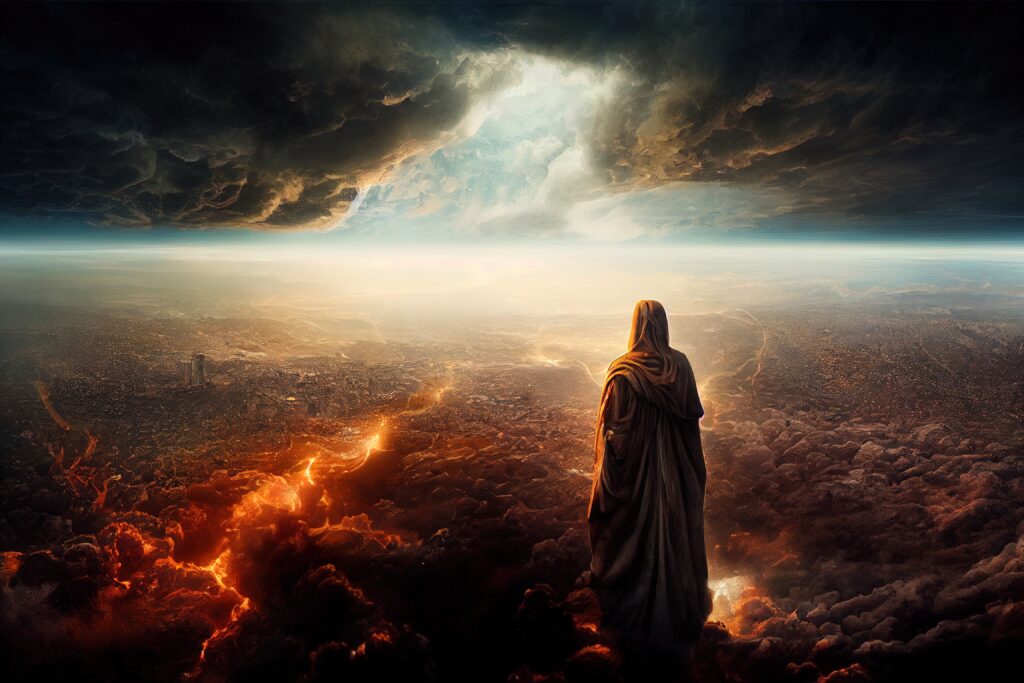
How Long Lord...
“When the Lamb broke the fifth seal, I saw under the altar the souls of all who had been martyred for the word of God and for being faithful in their testimony. 10 They shouted to the Lord and said, “O Sovereign Lord, holy and true, how long before you judge the people who belong to this world and avenge our blood for what they have done to us?” 11 Then a white robe was given to each of them. And they were told to rest a little longer until the full number of their brothers and sisters—their fellow servants of Jesus who were to be martyred—had joined them.” – Revelation 6:9-11. NLT
White robes are a common denominator among those who are in heaven. They are given by the grace of God; they are not earned. We will see them often (e.g. Rev.7: 9-13.) The white robe is a symbol of the righteousness of Jesus; without which we cannot enter the kingdom of God (see e.g. the parable in Matt.22:11-12.). The garment is free – all we must do is put it on. His perfection then covers our sinfulness and we are treated as if we had not sinned. This is Justification by faith alone, without the works of the law. We are treated as being perfect (though the truth is otherwise.) There is not one stich of human devising in the robe of Christ Righteousness that we must wear as our qualification for entry into heaven.
There are a couple of puzzling aspects to this text. First, what are the “souls under the altar” supposed to be doing? (Rev.6:9-10) . They are to “rest, wait, and relax for a while.” They are not to act but are to wait until something else happens. In most Bibles that something else is waiting for a certain number of martyrs to be reached (“until the number. . . was completed” -NIV). But the word “number” isn’t there in the original; it is introduced by translators to make sense of the passage. But the passage makes sense as it is. The “fellow servants” are being “completed,” perhaps a reference to their character in the final crisis of earth’s history (Rev.19:7-8). They are waiting for God to act in some special way for them.
Being told to “relax” is a bit surprising in a message from heaven. Some readers might see the “souls under the altar” as bodiless consciousness after death. If taken literally, the meaning of this verse would contradict countless other verses that teach bodily resurrection, (e.g. 1Cor.15: 42-44, 53) and the teaching of Gen.2:7 which sees the soul as the whole person, as well as verses like Eccl 9:5, which indicates no consciousness after death. But the text here is clearly symbolic, echoing the story of Cain and Abel (Gen.4:10,11) and the altar of burnt offerings in the Hebrew sanctuary, which is the only object in the sanctuary where anything happens at the base (Lev.5:9).
The “souls” under the altar are not in a disembodied state in heaven. The altar of burnt offering represents the cross of Christ and the persecution of believers, things that happen on earth.
As was the case with the blood of Abel which “cried out”, the martyrs are depicted as on earth, not in heaven. The crying out of the blood is a metaphorical way of saying that the things done to them are held in remembrance by God until their resurrection at the second coming of Jesus (1Thess.4:16).
Symbolically they are told to “rest a little longer” because it wasn’t the time for the resurrection of God’s faithful yet. “Do not marvel at this, for the hour is coming in which all who are in the graves will hear His voice and come forth – those who have done good, to the resurrection of life, and those who have done evil, to the resurrection of condemnation” John 5:28-29.
The martyred saints (a saint remember is anyone who is in Christ) were given robes representing Christ’s righteousness, which leads to their vindication—His gift to those who accept His offer of grace (Rev. 3:5, Rev. 19:8). Then, they were told that they would have to rest until their brothers, who would go through a similar experience, are made complete. It is important to notice that the Greek text of Revelation 6:11 does not have the word ‘number.’ Revelation does not talk of a number of the martyred saints to be reached before Christ’s return, but of completeness regarding their character. God’s people are made complete by the robe of Christ’s righteousness, not their own merit (Rev. 7:9, 10). The martyred saints will not be resurrected and vindicated until the second coming of Christ and the beginning of the millennium (Rev. 20:4). The scene of the fifth seal applies historically to the period leading up to, and following, the Reformation, during which millions were martyred because of their faithfulness (Matt 24:21). It also brings to mind the experience of God’s suffering people throughout history, from the time of Abel (Gen. 4:10) until the time when God will finally avenge “’the blood of His servants’ ” (Rev. 19:2).
‘How long, O Lord?’ ” has been the cry of God’s suffering people throughout history. Who has never struggled with the lack of justice in this life? Should we not find comfort in the scene of the fifth seal, knowing that one day justice will, indeed, be done?
